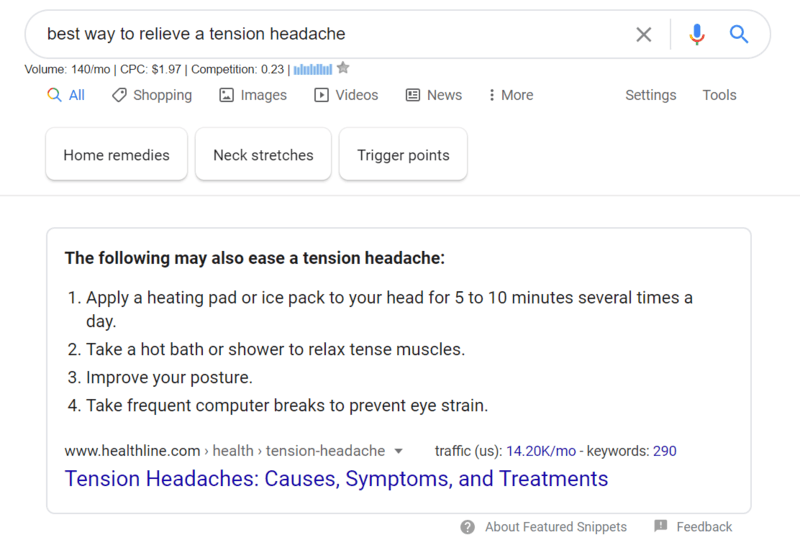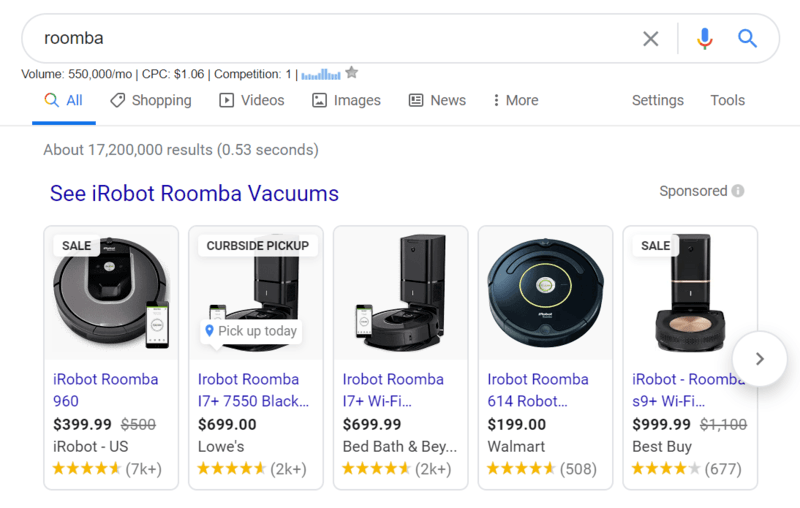15 Voice Search Trends & Statistics for 2021
Since the advent of voice search, the capabilities of voice-enabled devices have evolved to allow consumers to make increasingly complex and accurate searches.
In a world that is gradually more hands-free, this technology is developing at a rapid pace to meet and exceed our expectations. Phones, speakers, home assistants, and other voice-enabled devices are now part of our everyday lives.
Instead of switching on the news at night, people are asking their phones questions such as, “Hey Siri, what’s the weather looking like tomorrow?” and getting quick, detailed responses.
To understand how and why voice has grown so rapidly, it’s important to understand the past, current, and future trends that follow in the next section.
Just keep reading and sign up for our email newsletters to learn more!
Voice search trends and statistics
Here are fifteen voice search trends and statistics for 2021 and how you can use them to shape your voice search optimization strategy.
- 24% of U.S. adults own a smart speaker.
- 47% of smart speaker users own one device.
- 24% of smart speaker users own two devices.
- 29% of smart speaker users own three devices.
- 28% of people are concerned about smart speaker privacy and data security.
- 20% of smart speaker and smartphone owners use their devices’ voice assistant “several times per day.”
- 71% of consumers would rather use a voice search to search for something online instead of physically search for something.
- 18-24-year-olds are adopting voice technology faster than older groups.
- 25-49-year-olds are more likely to be considered “heavy users” of voice search technology.
- Only 10% of people are unfamiliar with voice-enabled devices.
- 24% of people have voice-search-enabled TVs or TV remotes
- 23% of people have voice search in their cars
- 21% of people have voice search on their computers
- 19% of people have voice search on their tablets
- 9% of people have voice-search-enabled household appliances
Let’s break these voice search statistics into some common themes and examine the impact of each trend.
General voice search trends
- 24% of U.S. adults own a smart speaker.
Significance: As smart speaker usage increases, more people conduct voice searches online. If your website content isn’t optimized for voice search, you’re likely missing out on valuable traffic and leads.
- 47% of smart speaker users own one device
- 24% of smart speaker users own two devices
- 29% of smart speaker users own three devices.
Significance: People are more likely to own multiple smart speaker devices. After purchasing one device, they see the value and buy additional speakers, which will capture additional and varying search queries.
- 28% of people are concerned about smart speaker privacy and data security.
Significance: Trust remains a barrier for voice search adoption. For the especially tech-savvy and skeptical, there is a level of concern about the safety of their data. This means that certain customer bases may be slower to adopt voice search. Manufacturers will have to address this through product updates and relaying those improvements to potential smart speaker customers.
Voice search usage trends
- 20% of smart speaker and smartphone owners use their devices’ voice assistant “several times per day.”
Significance: Owning a smart speaker and smartphone increases voice search usage. By having more than one voice assistant on hand, users are more likely to perform various searches and tasks throughout the day, increasing reliance on their voice assistants.
- 71% of consumers would rather use a voice search to search for something online instead of physically search for something.
The Significance: Users like the convenience and reliability of voice search for daily tasks like sending a text message or creating a grocery list. However, people use voice technology less frequently for more complex tasks or queries.
Voice search demographic trends
- 18-24-year-olds are adopting voice technology faster than older groups.
Significance: To no one’s surprise, the younger generation is driving adoption of voice search, which could have a waterfall effect on older generations, encouraging understanding and usage.
- 25-49-year-olds are more likely to be considered “heavy users” of voice search technology.
Significance: While Gen Z is driving adoption, it’s actually young and middle-aged adults who use voice search the most in their day-to-day lives. Businesses who target these customer segments will see the most benefit of optimizing for voice search.
Voice search device trends
- Only 10% of people are unfamiliar with voice-enabled devices.
Significance: General awareness of voice-enabled devices is high. Voice search has penetrated the U.S. market to an extent where only a small percentage of people are unfamiliar with the technology.
- 24% of people have voice-search-enabled TVs or TV remotes
- 23% of people have voice search in their cars
- 21% of people have voice search on their computers
- 19% of people have voice search on their tablets
- 9% of people have voice-search-enabled household appliances
Significance: Voice search is increasingly available in various applications. More products are building in voice search as a feature. This allows products, particularly those of the same family, to learn how consumers interact with different devices and to better understand consumers.
Voice search and search engine optimization (SEO)
Now that we understand the major voice search trends, it’s important to understand how they impact your business and website — and how to tailor your search engine optimization (SEO) strategy to reach voice searchers.
WebFX SEO Checker
- it's Comprehensive.
- it's Immediate.
- it's FREE.
As voice search usage increases, marketers should pay attention to how websites perform in voice-driven search results.
There are three types of search intents that all result in different voice search results:
1. Informational
The user is looking for information on a subject. Typically, the answer your voice search device returns will be from a Featured Snippet (if made in Google).

2. Transactional
The user is looking to buy. A typical result will include either a rich snippet with a list of businesses or a list of websites offering said product or service.

3. Commercial Investigation
The user is looking for more information before buying. These types of queries typically result in a Featured Snippet that relays a list or paragraph, such as “best washing machines.”

Optimizing your website for voice search queries requires an understanding of the user’s search intent, strategic content creation and optimization, and the ability to find these opportunities.
Once you understand and successfully optimize your website for today’s voice search queries, you can begin to prepare your website and marketing strategy for future trends.
How to optimize for voice search trends in 2021
Now that you understand where voice search is heading, you are probably wondering where to get started.
Here’s how you can begin optimizing for voice search queries:
- Focus on keyword research. Identify high-value keywords and keywords that relate to your product or service.
- Understand where you rank currently for those keywords. Identify gaps where you’re not ranking in the local pack or featured snippet.
- Optimize your page for the keyword and search intent. Rather than writing fluff, focus on being clear and concise when writing answers.
- Analyze your results and repeat as necessary.
Optimizing for voice search sounds easy enough, but if you want to be prepared for the onslaught of voice-driven queries, it’s best to take a holistic approach with the help of a voice search expert like WebFX.
Future of voice search: What to expect?
In the next few years, you can expect gradual, but noticeable changes and improvements in voice search. Here are some voice search trends you can expect in the coming months and years.
Artificial intelligence (AI) and machine learning
The advancement of artificial intelligence (AI) via machine learning is going to greatly accelerate the adoption of voice search.
That’s because the enhanced Natural Language Processing capabilities will make it easier for voice assistants to understand and complete complex and important tasks, such as those involving money or health.
Mobile
While many voice searches are already made with a phone, you can expect that number to increase. Why? Additional capabilities baked into your favorite apps, more accurate search results, and greater operating knowledge from low-use groups.
Smart speakers
Not to be outdone by a cell phone, smart speaker usage will also continue to rise, with certain integrations available to businesses that partner with the varying manufacturers.
For example, Google partners with The New York Times, Starbucks, and many other businesses to perform specific actions on Google assistants.
Local search
Local businesses have the most to win (or lose) by optimizing for voice search queries, so it’s likely that many businesses will start accounting for voice search optimization in their marketing strategies.
If you offer rental equipment and someone searches for “equipment rental near me,” you want to be included in the list that Google creates, the local pack.
Chatbots
Businesses use chatbots because they increase availability, and in most cases, customer happiness. Voice-enabled chatbots will allow businesses to create greater insight into customer queries while also streamlining frequently asked questions.
Stay on top of voice search trends with WebFX!
Voice search is a trend that isn’t slowing down anytime soon. In fact, we’re heading quickly into an era where we predominantly search by using our voices.
To best optimize your website for the way that users are searching, make sure you’re working with experts who understand the ins and outs of voice search optimization.
If you’re interested in working with the qualified experts at WebFX, contact us online or give us a call at 717-888-601-5359.